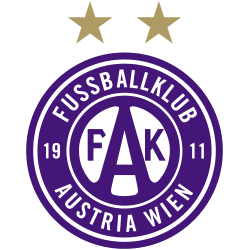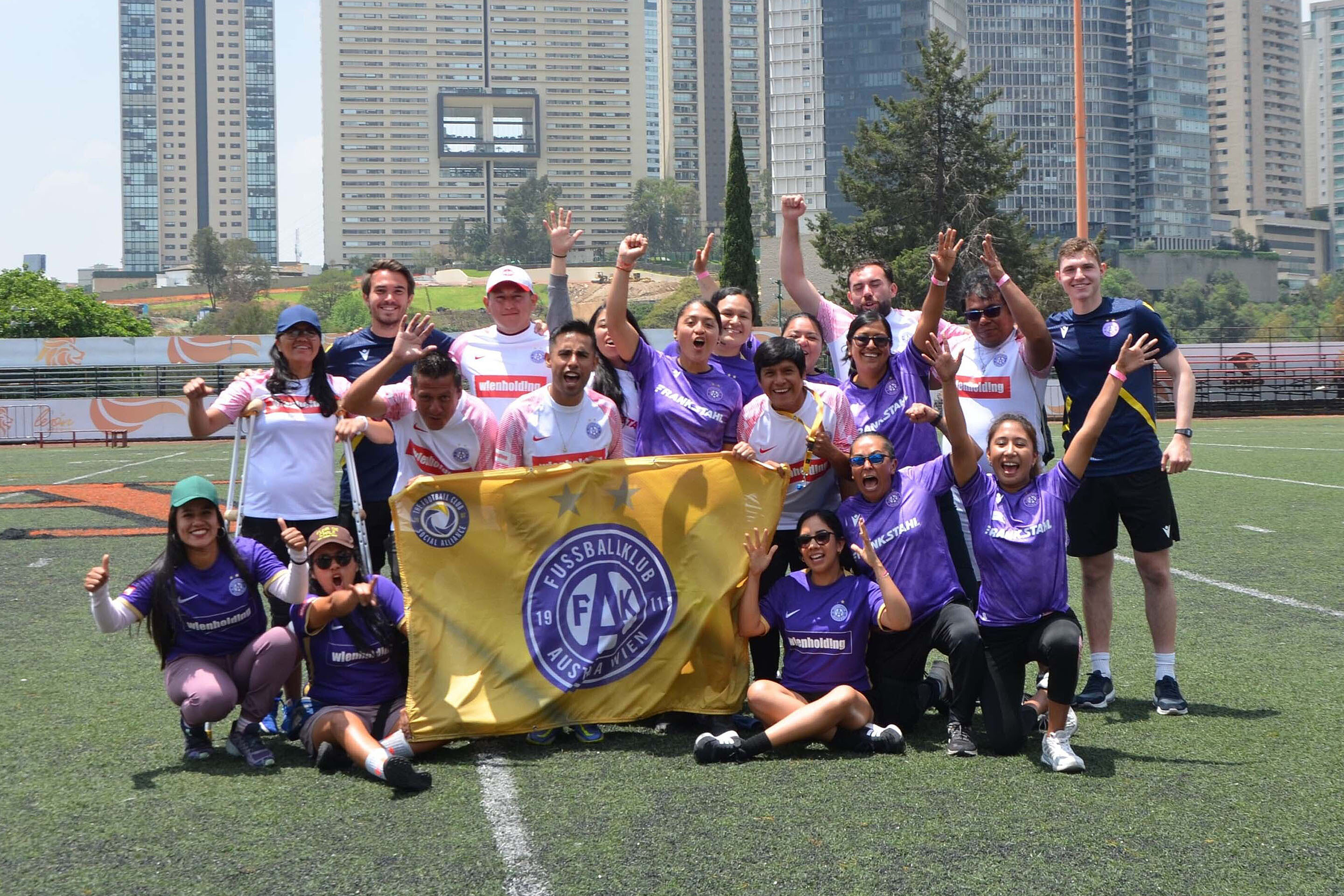 Home
Home
FCSA-Young Coaches back in Mexico!
After a four-year absence, the Football Club Social Alliance (FCSA) returned to Mexico for a follow-up with the participation of the Violets and held a training course for former project participants. 39 children's football coaches learnt how they can support disadvantaged children through football despite the precarious circumstances in the country.

In the months before the pandemic hit the world, the FCSA worked with local organisations and the UN refugee agency UNHCR to train 41 young adults, known as Young Coaches, to become children's football coaches. Many of them had previously worked in the social sector. For example, with refugee children whose families were fleeing violence, persecution and poverty and who were travelling in large caravans towards the north of Mexico at the time.
Challenging conditions
A good four years later, the situation in Central America has deteriorated further. For many people seeking protection, Mexico is no longer a transit country but a destination. The country is among the top five countries with the most asylum applications. The influx of people seeking protection from countries such as Honduras, Haiti and El Salvador is pushing cities on the southern border and the capital to their limits. Many families are condemned to a life on the streets and are therefore exposed to multiple dangers. A good half of all young coaches who completed their training with the FCSA in 2019 are still involved in helping their children.
Targeted further training for young coaches
From 11 - 14 July, FCSA instructors Julian Senfter and Caspar Prill (both FK Austria Wien) and Kai Brock (FC Schalke 04) travelled to Mexico City to train 18 young coaches and 21 selected peer young coaches (coaches who have been trained by young coaches) on site. Throughout the training, special attention was paid to the flexibility of the coaches so that they can organise attractive training sessions for children of different ages and abilities even under difficult conditions. This year's course was expanded to include the topics of sexual and gender-based violence and inclusion. The young coaches were to learn how football can be used as an educational and awareness-raising tool on specific topics.
With new ideas, refreshed knowledge and a strengthened network, the participants returned to their communities full of energy to continue their activities with disadvantaged children. Since 2020, over 8,000 children in Mexico have benefited from the work of the FCSA and its instructors.
Julian Senfter, FCSA Instructor, FK Austria Wien
‘The follow-up was important to emphasise the positive effects of football. Nevertheless, we must not forget that a certain structure is also needed for the training sessions, for example.We wanted to show them this balance.’
Caspar Prill, FCSA instructor, FK Austria Wien
‘The young coaches were extremely motivated, you have to give them credit: They often have to work in very confined spaces, with traumatised children from different countries. That's exactly why I thought it was so important to address topics such as inclusion or gender-based violence - so the coaches can really manage to be there for all children and make it fun for them through sport.’
Johann Weigand Rodriguez, UNHCR Mexico
‘Projects like this can improve the mental health of refugees and help them to integrate in a new country. All these Young Coaches and Peer Young Coaches work in regions with large refugee populations. Through their new or refreshed training, they will be better able to deal with these communities and engage with them through sport.’